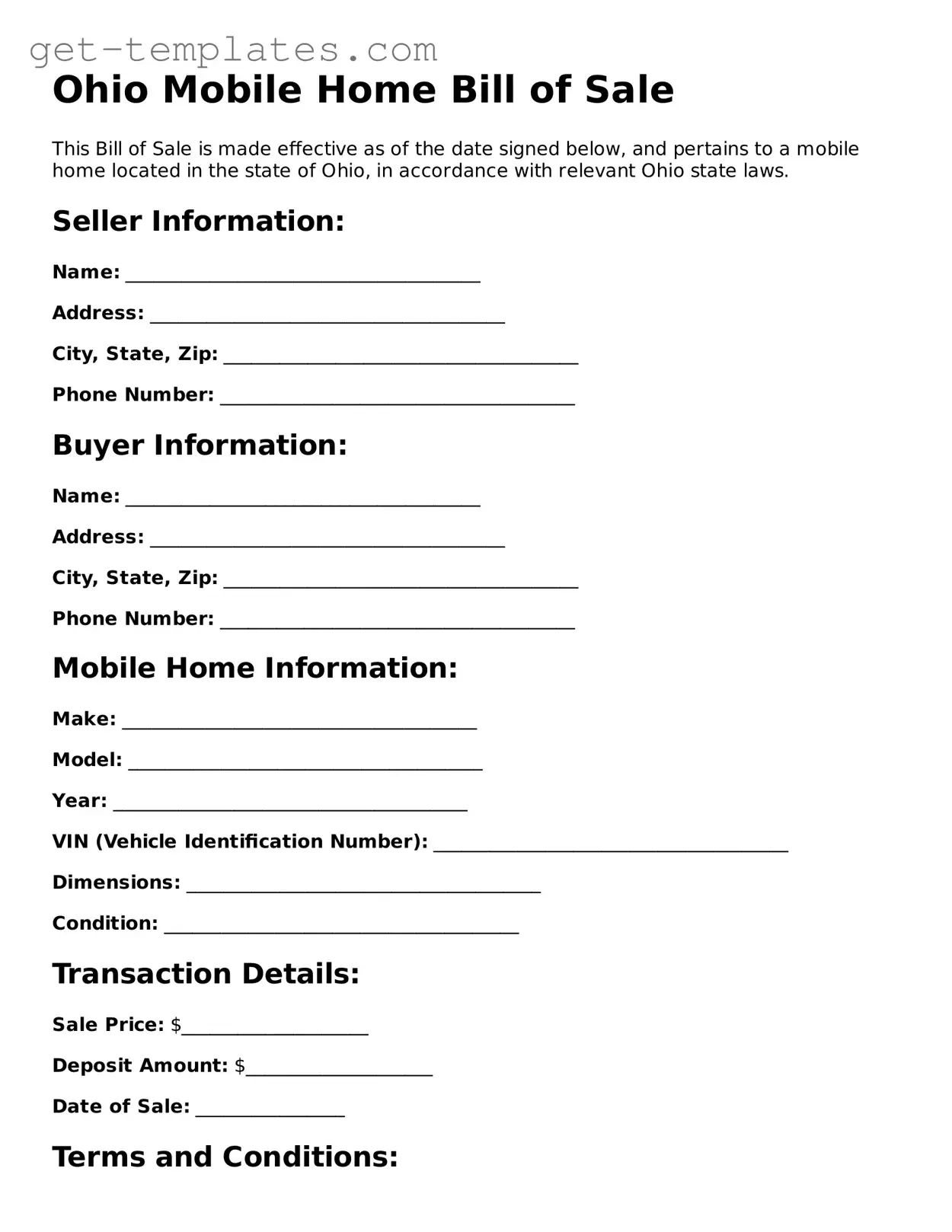Attorney-Approved Mobile Home Bill of Sale Document for Ohio
The Ohio Mobile Home Bill of Sale form serves as a crucial document in the transfer of ownership for mobile homes within the state. This form provides essential details about the transaction, ensuring that both the buyer and seller are protected. Understanding its components can simplify the process and help avoid potential disputes down the line.
Get Document Online

Attorney-Approved Mobile Home Bill of Sale Document for Ohio
Get Document Online
You’re halfway through — finish the form
Finish Mobile Home Bill of Sale online — edit, save, download made easy.
Get Document Online
or
⇓ PDF Form
